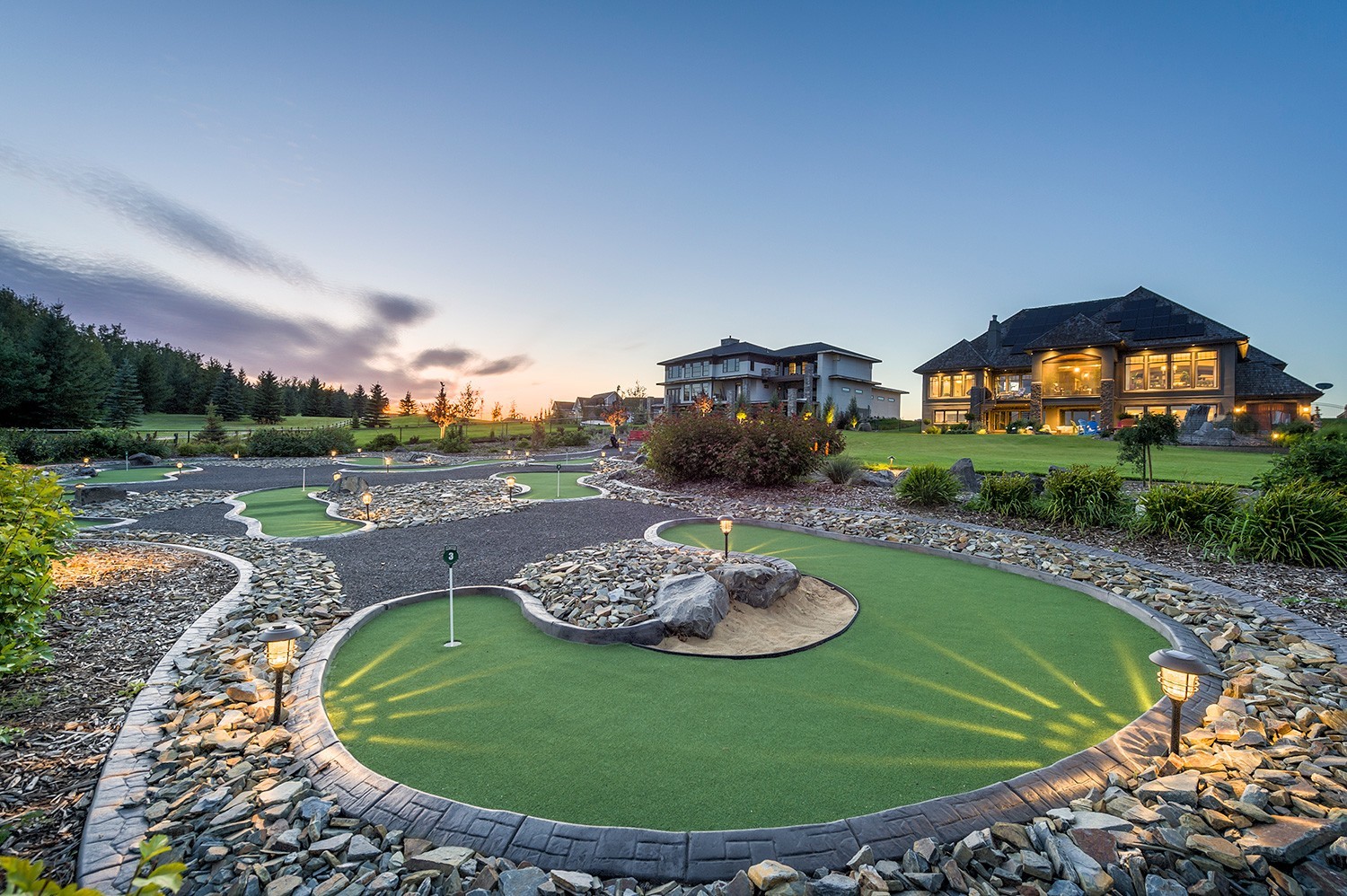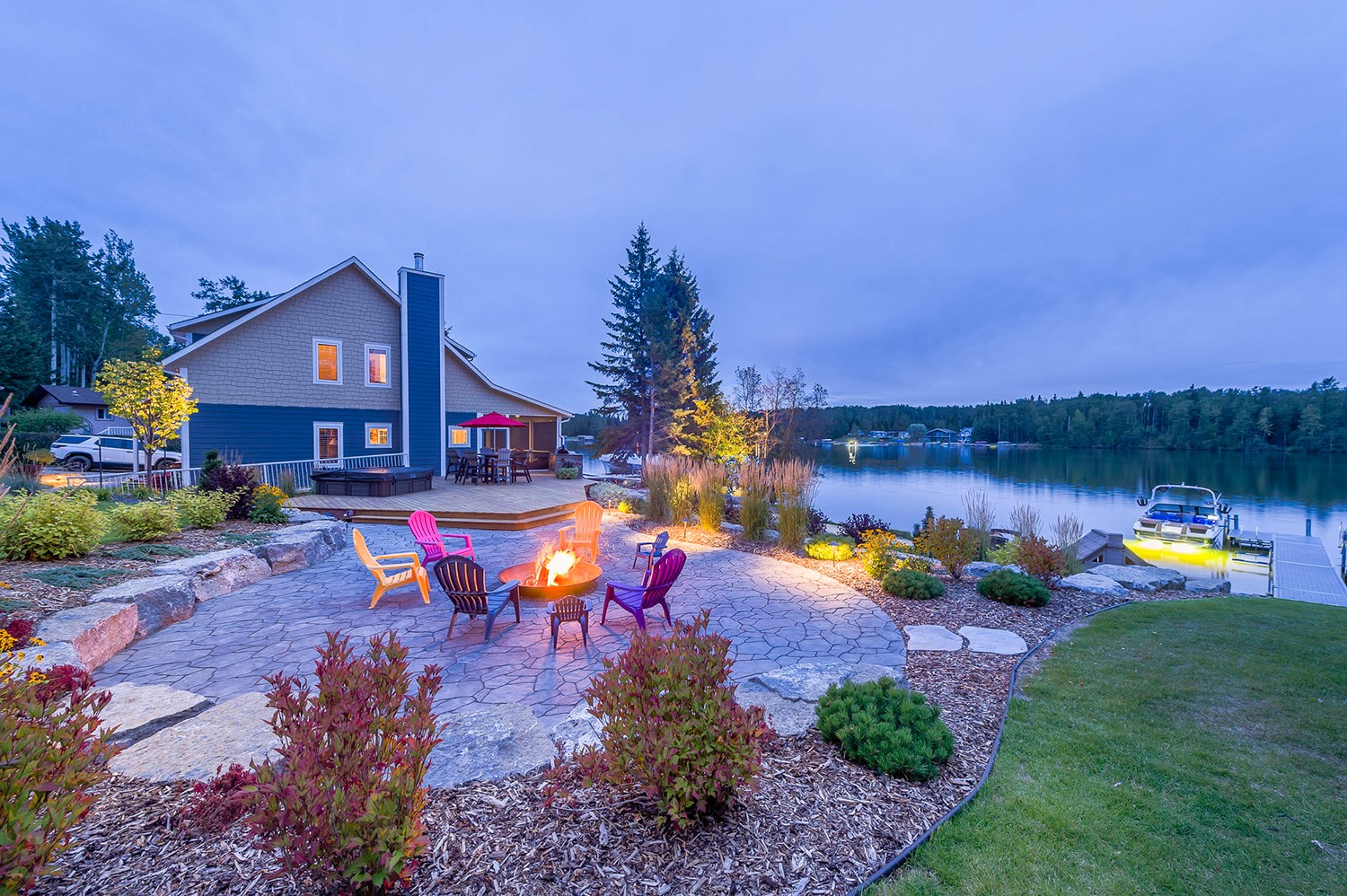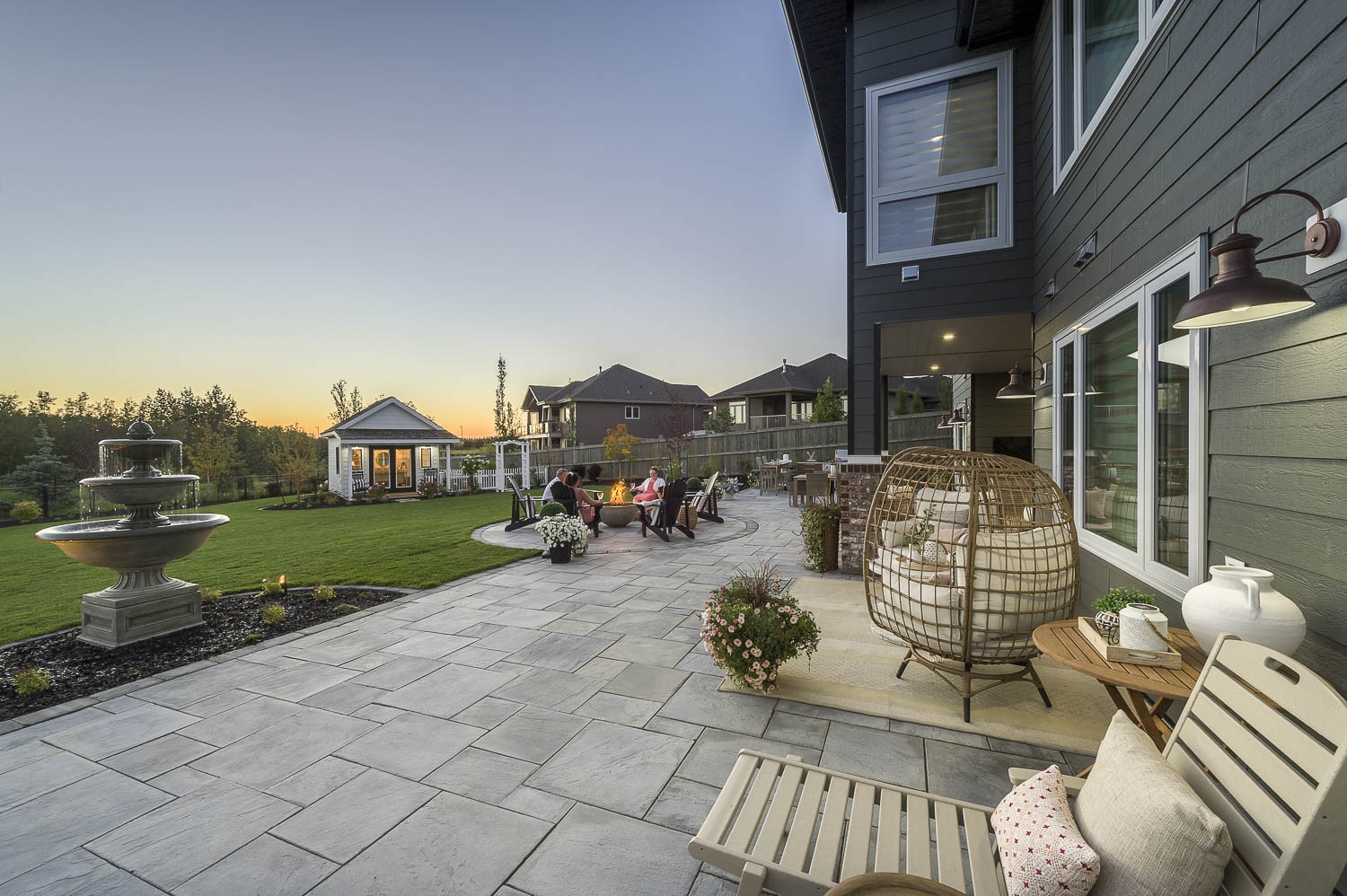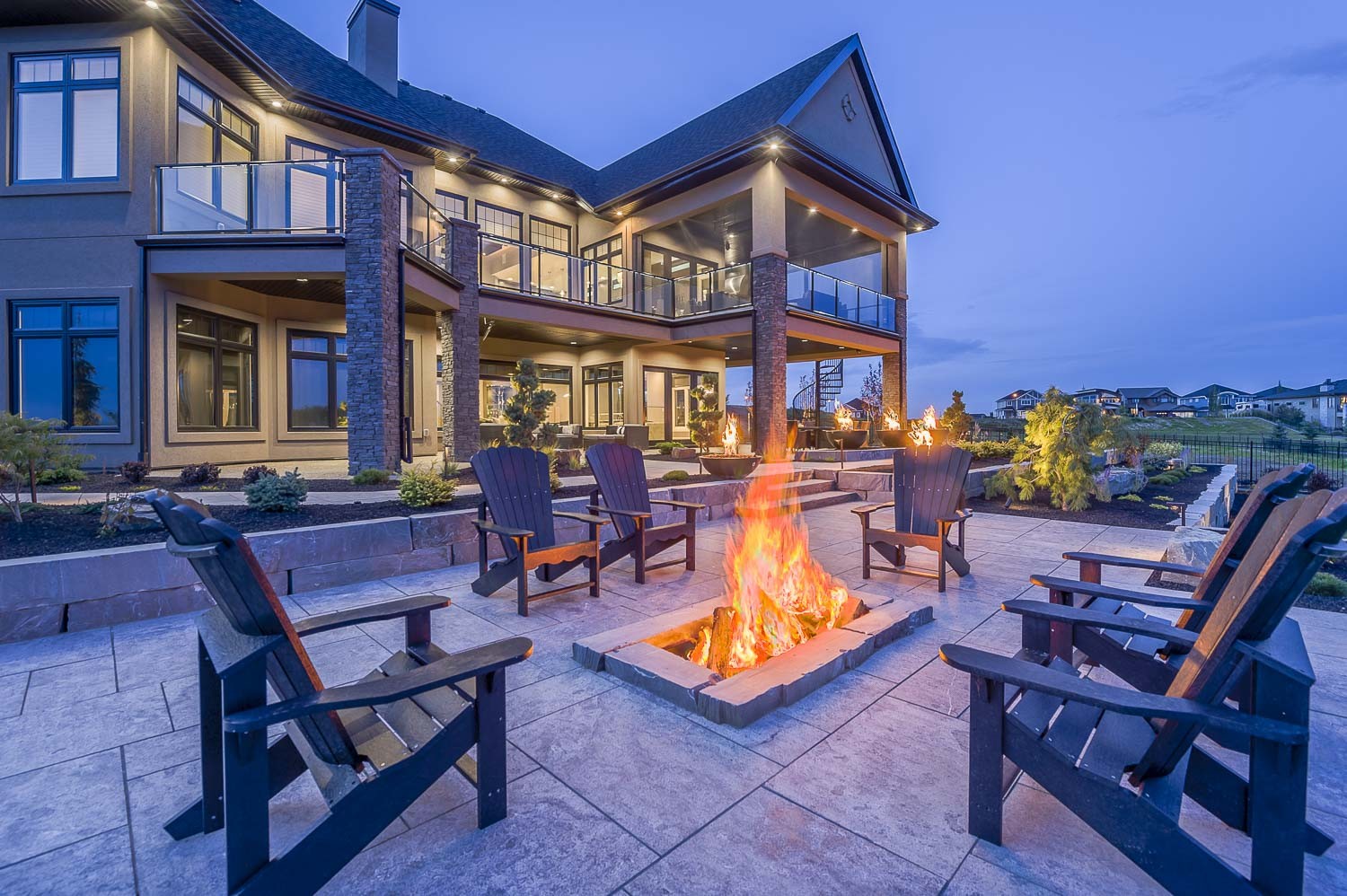Blog
Exploring the Multifaceted Role of a Landscaping Designer in Property Development

Whether you're a property developer looking to enhance the beauty and functionality of your project, or simply someone with a passion for creating stunning outdoor spaces, understanding the multifaceted role of a landscaping designer is essential. From conceptualizing breathtaking designs to implementing sustainable features, these creative professionals play a crucial role in shaping both residential and commercial properties. In this article, we will delve into the various types of landscaping designers, explore their responsibilities, and uncover how they contribute to property development. So grab your gardening gloves and join us on this exciting journey!
Landscaping design
Landscaping design is the art and science of creating visually appealing outdoor spaces that seamlessly blend with their surroundings. It involves careful planning, creativity, and an understanding of various elements such as horticulture, architecture, and environmental sustainability.
One of the primary goals of landscaping design is to enhance the aesthetic appeal of a property. By strategically selecting plants, trees, shrubs, and other natural elements, a skilled designer can transform even the most ordinary space into a stunning oasis. They consider factors like color schemes, texture variations, and seasonal changes to create harmonious compositions that delight the senses.
However, landscaping design goes beyond mere aesthetics. It also focuses on functionality and practicality. A well-designed landscape takes into account factors like drainage systems to prevent waterlogging or erosion issues. It incorporates pathways for easy navigation and comfortable seating areas for relaxation or entertainment purposes.
Moreover, sustainable practices are becoming increasingly important in landscaping design. Designers are now incorporating eco-friendly features like rainwater harvesting systems, native plant species that require less water or maintenance, and energy-efficient lighting solutions.
In summary, landscaping design is an intricate process that combines artistic vision with technical knowledge to create captivating outdoor spaces that not only add value but also promote environmental stewardship.
The different types of landscaping designers
When it comes to landscaping design, there are various types of professionals who specialize in creating beautiful outdoor spaces. Each type of landscaping designer brings their own unique set of skills and expertise to the table.
One type of landscaping designer is a landscape architect. These professionals are highly trained and educated in both the artistic and technical aspects of designing landscapes. They often work on large-scale projects such as parks, commercial developments, and urban planning initiatives.
Another type of landscaping designer is a residential landscape designer. These designers focus specifically on creating outdoor spaces for residential properties. They work closely with homeowners to understand their needs and preferences, and then develop a design plan that enhances the overall aesthetic appeal and functionality of the property.
There are also specialized types of landscaping designers such as garden designers, horticulturists, and permaculture designers. Garden designers focus on creating visually stunning gardens while horticulturists have an extensive knowledge of plants and help select the right flora for a particular space. Permaculture designers take into consideration sustainable practices when designing landscapes.
No matter what type of landscaping designer you choose to work with, they all play an important role in bringing your vision to life. Their expertise allows them to create functional, aesthetically pleasing outdoor spaces that enhance property value while providing enjoyment for years to come.
The responsibilities of a landscaping designer
A landscaping designer has a wide range of responsibilities when it comes to creating and transforming outdoor spaces. They are skilled professionals who combine their knowledge of design principles, horticulture, and construction techniques to bring landscapes to life.
One of the primary responsibilities of a landscaping designer is to collaborate with clients in order to understand their vision for the space. This involves listening carefully to their wants and needs, as well as conducting site analyses and surveys. By gathering this information, the designer can develop a comprehensive plan that meets both aesthetic preferences and functional requirements.
Once the initial design concept is established, the landscaping designer is responsible for selecting appropriate materials, plants, and features that will enhance the overall look and feel of the landscape. They must consider factors such as climate conditions, soil quality, maintenance requirements, and budget constraints when making these decisions.
In addition to designing the layout of outdoor spaces, a landscaping designer also plays an important role in project management. They oversee various aspects of implementation including coordinating with contractors or installation teams, ensuring adherence to timelines and budgets, obtaining necessary permits or approvals if required.
Throughout all stages of a project's development - from conceptualization through execution - a landscaping designer must exercise creativity while also possessing strong organizational skills attention detail ensure projects are successful completed within specified guidelines.
Whether working on residential commercial public properties responsibilities landscaping designers multi-faceted involve everything planning designing coordinating implementing managing From start finish they have ability turn ordinary piece land into stunning inviting environment brings joy beauty functionality lives those encounter.
The role of a landscaping designer in property development
The role of a landscaping designer in property development is multifaceted and crucial to the overall success of a project. These professionals have the expertise to transform outdoor spaces into functional, aesthetically appealing areas that enhance the value and appeal of a property.
One key responsibility of a landscaping designer in property development is to collaborate with architects, developers, and other stakeholders to create comprehensive site plans that integrate seamlessly with the surrounding environment. They consider factors such as topography, drainage, soil quality, and existing vegetation to design landscapes that are both sustainable and visually pleasing.
In addition to designing outdoor spaces, landscaping designers also play a vital role in project management. They oversee the implementation of their designs by working closely with contractors and ensuring that all elements are executed according to plan. This includes selecting appropriate materials for hardscapes (such as walkways or patios) and coordinating plant installations.
Furthermore, landscaping designers contribute significantly to enhancing curb appeal and attracting potential buyers or tenants. By incorporating attractive features like gardens, water features, or outdoor living areas into their designs, they can create inviting spaces that add value not only aesthetically but also financially.
Another important aspect of their role involves considering sustainability practices in landscape design. Landscaping designers prioritize using environmentally friendly techniques such as native plant selections or rainwater harvesting systems to minimize environmental impact while optimizing energy efficiency.
The role of a landscaping designer in property development goes beyond mere aesthetics; it encompasses careful planning, collaboration with various stakeholders throughout the project timeline along with an understanding of environmental considerations. Their contribution helps create captivating outdoor spaces that elevate properties' desirability while promoting sustainability principles.
In today's competitive property development industry, the role of a landscaping designer is multifaceted and essential. They are not just responsible for creating aesthetically pleasing outdoor spaces; they also have a significant impact on the overall value and appeal of a property.
Whether it's designing urban parks, residential gardens, or commercial landscapes, landscaping designers bring their expertise to transform ordinary spaces into extraordinary ones. They possess an in-depth understanding of plants, materials, and design principles that enable them to create functional and visually stunning outdoor environments.
From conceptualization to implementation, landscaping designers play a crucial role in every step of the property development process. They collaborate closely with architects, developers, contractors, and other professionals to ensure that the landscape design seamlessly integrates with the overall vision of the project.
One key responsibility of a landscaping designer in property development is cost management. They must carefully consider budget constraints while still delivering high-quality designs that meet the client's expectations. This requires meticulous planning and resource allocation to optimize both aesthetics and functionality within financial limitations. Another vital aspect where landscaping designers shine is sustainability. With increasing awareness about environmental conservation and energy efficiency, these professionals incorporate sustainable practices into their designs. From selecting native plants that require less water to incorporating green infrastructure elements like rain gardens or permeable pavements for storm water management – they strive towards creating environmentally friendly landscapes.
Moreover, landscaping designers understand how important it is for properties to stand out in today's market. By incorporating unique features such as outdoor living areas or innovative lighting schemes, they create distinctive selling points that attract potential buyers or tenants.
We can see that a skilled landscaping designer plays an integral role in property development by enhancing curb appeal, increasing property value, improving sustainability efforts, and differentiating properties from competitors.
Their expertise brings life to otherwise mundane spaces and transforms them into breathtaking showcases. So next time you admire a beautifully designed garden or a well-crafted outdoor space, remember the talented professional.
For more information, you can contact The Jansen Group at 780.399.4200 or email them at office@thejansengroup.ca. You can also visit their website at https://thejansengroup.ca/contact to learn more about their services and expertise.


